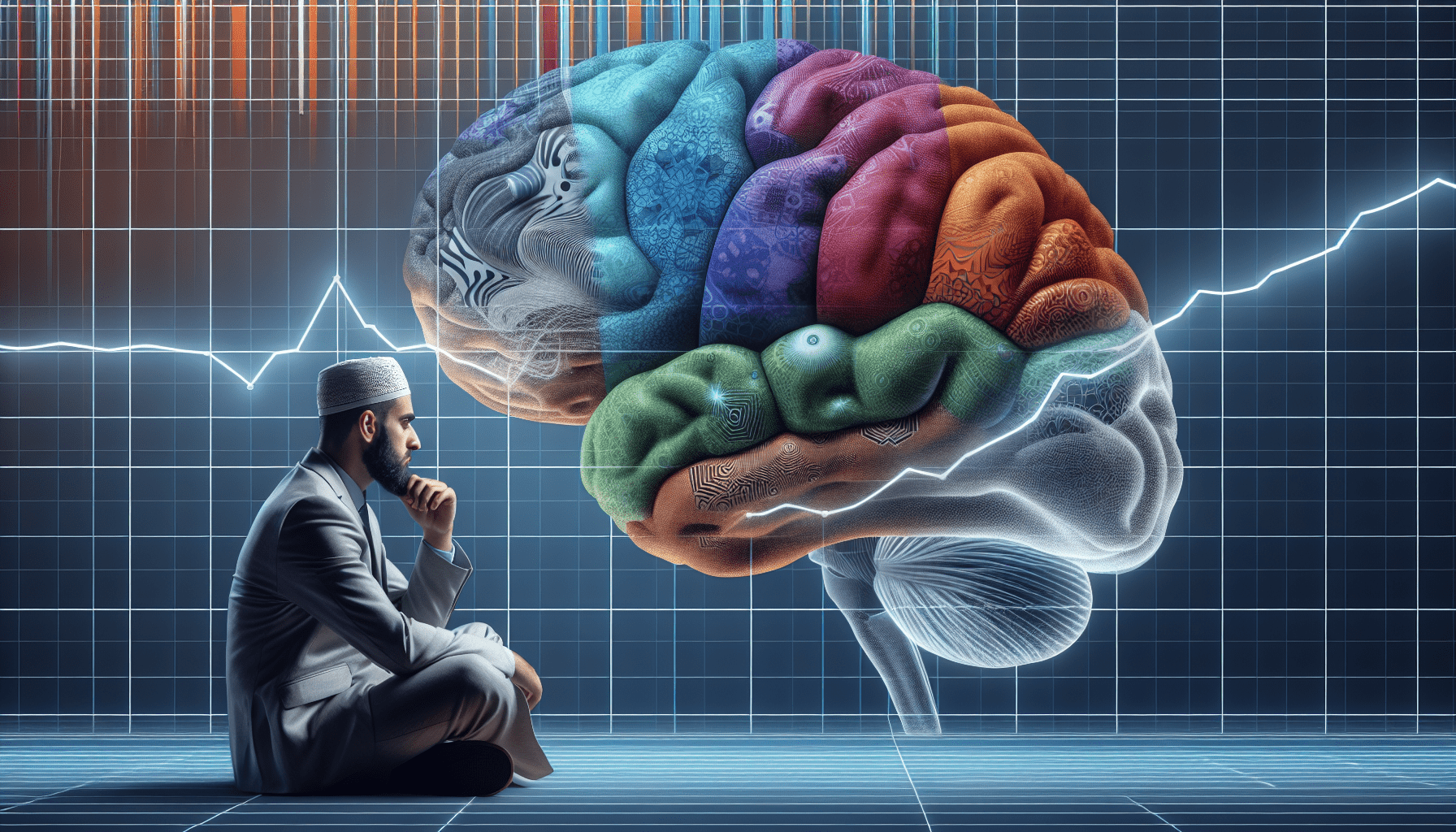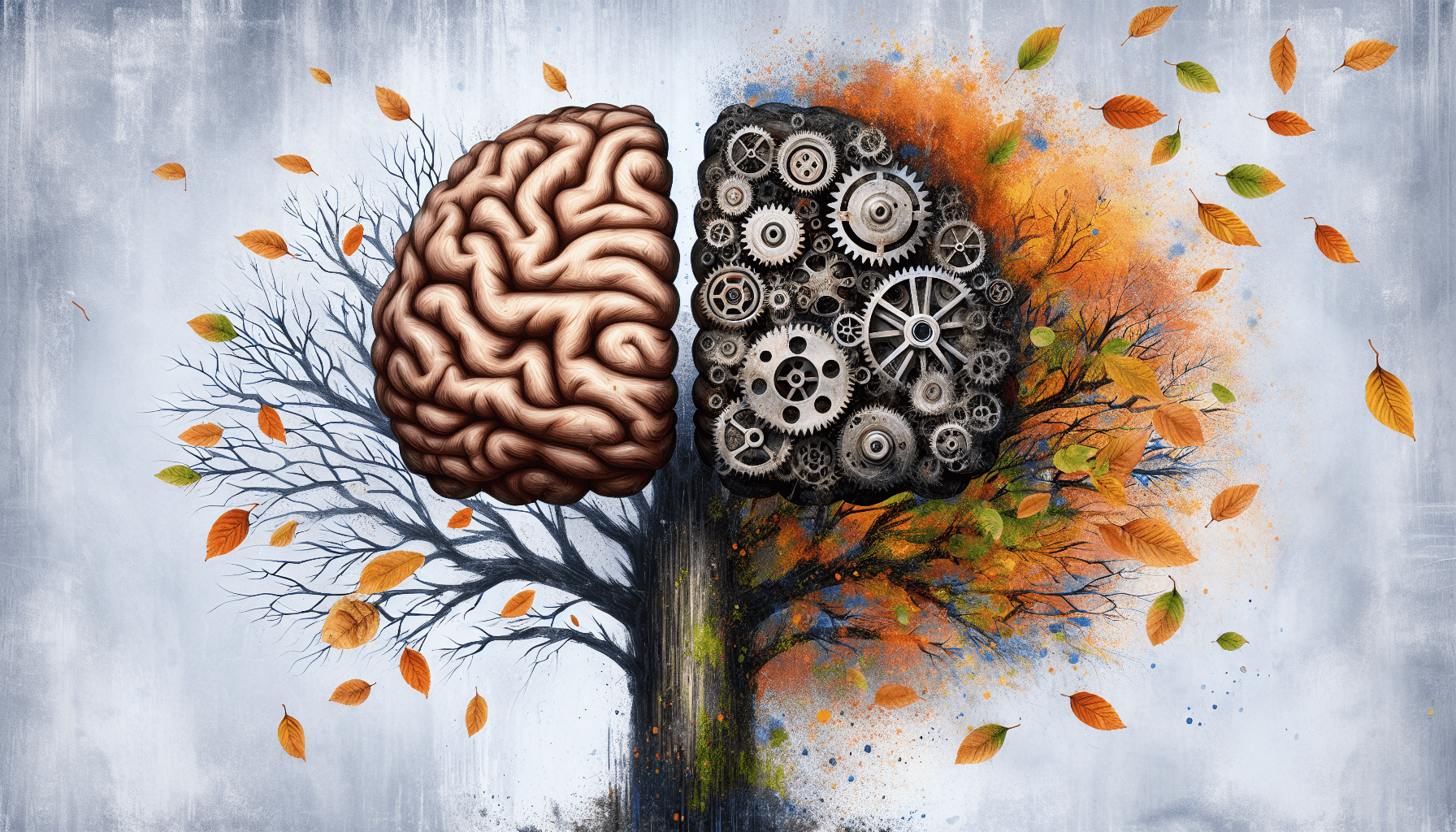In “Understanding Mild Cognitive Impairment in Frontotemporal Lobar Degeneration,” we explore the intricacies of this condition and shed light on its impact. This article focuses on the specific subject mentioned in the title, delving into the details of mild cognitive impairment caused by frontotemporal lobar degeneration. By providing in-depth coverage of this topic, we aim to enhance your understanding of the challenges faced by individuals with this condition, offering valuable insights into its symptoms and effects.

Understanding Mild Cognitive Impairment and Frontotemporal Lobar Degeneration
Mild Cognitive Impairment (MCI) is a condition characterized by a decline in cognitive function that is more noticeable than typical age-related changes but does not interfere significantly with daily activities. Frontotemporal Lobar Degeneration (FTLD) is a neurodegenerative disease that affects the frontal and temporal lobes of the brain, leading to changes in behavior, language, and cognition. Understanding the link between MCI and FTLD is crucial in order to diagnose and manage these conditions effectively.
Definition of Mild Cognitive Impairment
Mild Cognitive Impairment refers to a slight decline in cognitive abilities, such as memory, attention, and thinking skills, that is beyond what is expected with normal aging. However, individuals with MCI are still able to carry out their daily activities independently. It is important to note that MCI can be caused by various underlying conditions, and one of them is FTLD.
Definition of Frontotemporal Lobar Degeneration
Frontotemporal Lobar Degeneration is an umbrella term used to describe a group of neurodegenerative disorders that primarily affect the frontal and temporal lobes of the brain. These disorders are characterized by a progressive decline in behavior, language, and cognition. The specific symptoms and progression of FTLD can vary depending on the subtype.
Link between Mild Cognitive Impairment and Frontotemporal Lobar Degeneration
MCI can be seen as an early stage in the progression of various neurodegenerative diseases, including FTLD. Research has shown that, in some cases, MCI can be a precursor to FTLD and may eventually progress to more severe forms of dementia. While not all individuals with MCI will develop FTLD, it is important to monitor their cognitive functioning and identify any underlying causes to ensure appropriate management and support.
Classifications of Frontotemporal Lobar Degeneration
Frontotemporal Lobar Degeneration encompasses several subtypes, each with its own pattern of symptoms and areas of the brain affected. The three primary subtypes of FTLD are Behavioral Variant Frontotemporal Dementia (bvFTD), Primary Progressive Aphasia (PPA), and Semantic Variant Primary Progressive Aphasia (svPPA). Non-fluent Variant Primary Progressive Aphasia (nfvPPA) is also recognized as a subtype of PPA.
Behavioral Variant Frontotemporal Dementia
Behavioral Variant Frontotemporal Dementia is the most common subtype of FTLD. It is characterized by changes in behavior, personality, and executive functions. Common symptoms include disinhibition, apathy, loss of empathy, impulsivity, and difficulty with planning and organizing. Language functions are relatively preserved in the early stages of bvFTD.
Primary Progressive Aphasia
Primary Progressive Aphasia primarily affects language abilities, leading to difficulties in expression or understanding of language. Individuals with PPA may struggle with finding words, formulating sentences, or following conversations. The three subtypes of PPA are characterized by distinct language impairments: semantic variant primary progressive aphasia (svPPA), non-fluent variant primary progressive aphasia (nfvPPA), and logopenic variant primary progressive aphasia (lvPPA).
Semantic Variant Primary Progressive Aphasia
Semantic Variant Primary Progressive Aphasia is characterized by impaired comprehension of words and objects, with individuals having difficulty understanding the meaning of words and recognizing familiar objects or faces. Individuals with svPPA may also exhibit word-finding difficulties and show changes in their behavior and personality.
Non-fluent Variant Primary Progressive Aphasia
Non-fluent Variant Primary Progressive Aphasia is characterized by a deterioration of speech production and motor functions involved in speech, such as articulation and grammar. Individuals with nfvPPA may experience difficulties in initiating speech, producing fluent sentences, and maintaining speech rhythm.
Symptoms of Mild Cognitive Impairment in Frontotemporal Lobar Degeneration
Mild Cognitive Impairment in the context of FTLD can present with a variety of symptoms that affect different cognitive domains.
Changes in personality and behavior
One hallmark symptom of FTLD is a notable change in behavior and personality. Individuals may exhibit socially inappropriate behaviors, such as impulsive actions or lack of empathy. They may also experience a loss of interest in previously enjoyed activities, apathy, or withdrawal from social interactions.
Difficulties in language and communication
In the early stages of FTLD, individuals may experience language difficulties, including trouble finding the right words, forming coherent sentences, or understanding and following conversations. Language impairments can be one of the primary symptoms of FTLD, especially in the subtypes of PPA.
Memory problems
While memory problems are more commonly associated with other forms of dementia, individuals with MCI due to FTLD may experience mild memory impairments. These memory problems are usually not as severe as those seen in Alzheimer's disease or other memory-related conditions.
Motor problems
In some cases of FTLD, individuals may develop motor problems such as muscle weakness, coordination difficulties, or abnormal movements. These motor symptoms are more commonly associated with certain subtypes of FTLD, such as bvFTD.
Possible Causes and Risk Factors
The causes of FTLD are still not fully understood, but research suggests a combination of genetic and environmental factors.
Genetic causes of FTLD
A significant number of FTLD cases are associated with genetic mutations. Mutations in genes such as C9orf72, MAPT, and GRN have been found to contribute to the development of FTLD. These genetic mutations can be inherited or occur sporadically.
Risk factors for developing Mild Cognitive Impairment associated with FTLD
Aging is considered a significant risk factor for developing MCI associated with FTLD. Other risk factors may include a family history of FTLD or other forms of dementia, as well as certain genetic mutations associated with FTLD. However, it is important to note that not all individuals with these risk factors will develop FTLD or MCI.

Diagnostic Tools and Tests
Accurate diagnosis of FTLD and MCI in FTLD can be challenging due to the overlap of symptoms with other neurological conditions. Several tests and tools can aid in the diagnostic process.
Neurological examination
A thorough neurological examination is crucial in assessing cognitive, motor, and behavioral functioning. This examination involves evaluating reflexes, muscle strength and tone, coordination, and other neurological markers.
Cognitive and neuropsychological tests
A variety of cognitive and neuropsychological tests may be used to assess memory, language, attention, executive functions, and other cognitive domains. These tests can help identify specific impairments and patterns consistent with FTLD and MCI.
Brain imaging
Brain imaging techniques, such as magnetic resonance imaging (MRI) or positron emission tomography (PET), can provide valuable information about structural or functional brain changes associated with FTLD. These imaging studies can help differentiate FTLD from other neurodegenerative conditions and contribute to a more accurate diagnosis.
Lab tests
Lab tests, including blood tests and cerebrospinal fluid analysis, may be performed to rule out other potential causes for cognitive impairment and to assess markers associated with FTLD. However, these tests alone cannot definitively diagnose FTLD and are typically used in combination with other assessment tools.
Treatment and Management Options
While there is currently no cure for FTLD or MCI, various treatment and management strategies can help alleviate symptoms and improve quality of life for individuals with these conditions.
Therapies for managing symptoms
Behavioral and psychological interventions, such as behavior modification techniques and psychoeducation, can help manage challenging behaviors and provide support for individuals and their caregivers. Speech and language therapy can be beneficial for individuals with language impairments in PPA subtypes.
Medications
Medications may be prescribed to manage specific symptoms associated with FTLD, such as depression, anxiety, or behavioral disturbances. However, it is important to note that medication options are limited and must be carefully considered, as they may have limited efficacy and potential side effects.
Lifestyle and home remedies
Maintaining a healthy and stimulating environment at home, maintaining a regular routine, and engaging in activities that promote cognitive and social stimulation can help manage symptoms and provide a sense of purpose and fulfillment.
Coping and support
Joining support groups or seeking individual counseling can provide valuable emotional support for individuals and their caregivers. Learning effective coping strategies and connecting with others facing similar challenges can help reduce feelings of isolation and enhance overall well-being.

Research and Future Directions
Ongoing research investigations are focused on gaining a deeper understanding of the underlying mechanisms of FTLD and MCI associated with FTLD. Research efforts aim to develop more accurate diagnostic tools, explore potential treatment targets, and discover ways to prevent or delay the progression of these conditions.
Future treatment possibilities based on research findings
Emerging research findings may pave the way for the development of novel treatments targeting the specific molecular mechanisms involved in FTLD. These treatments may focus on reducing the accumulation of abnormal proteins in the brain, enhancing neuroplasticity and repair, or modifying genetic factors that contribute to FTLD.
Prognosis and Progression
The prognosis for individuals with FTLD and MCI associated with FTLD varies depending on the specific subtype, age at onset, and other factors. On average, individuals with FTLD tend to have a shorter survival rate compared to individuals with other forms of dementia. The progression of FTLD is generally gradual, with symptoms worsening over time and leading to increasing functional impairment and dependency.
Possible outcomes and life expectancy with FTLD and MCI
The outcomes and life expectancy with FTLD and MCI can vary widely. Some individuals may experience a relatively slow progression of symptoms, while others may deteriorate more rapidly. The average life expectancy after diagnosis of FTLD ranges from about six to ten years, although individual cases can differ significantly.
Potential for progression to more severe forms of dementia
MCI associated with FTLD can progress to more severe forms of dementia, including advanced stages of FTLD or other types of dementia. Regular monitoring of cognitive and behavioral changes, along with appropriate management strategies, can help optimize quality of life and adjust caregiving plans as needed.

Role of Caregivers and Family
Caregivers play a crucial role in supporting individuals with FTLD and MCI. They help manage challenging behaviors, provide emotional support, and assist with daily activities. Caregivers often face significant physical, emotional, and financial challenges, and it is important to acknowledge and address their needs.
Importance of caregivers in symptom management and support
Caregivers play a vital role in managing and supporting individuals with FTLD and MCI. They provide supervision and assistance with daily activities, monitor medication schedules, and implement strategies to manage challenging behaviors. Caregivers also serve as advocates, ensuring individuals with FTLD receive appropriate care and support from healthcare professionals.
Impact of FTLD and MCI on family relationships
The impact of FTLD and MCI extends beyond the affected individual, affecting family relationships and dynamics. The behavioral and cognitive changes associated with these conditions can be distressing for family members and may strain relationships. Open communication, education about the disease, and access to support services can help families navigate these challenges and maintain healthy relationships.
Maintaining Quality of Life
While FTLD and MCI can present significant challenges, there are strategies and interventions that can help individuals maintain their quality of life and independence for as long as possible.
Strategies for maintaining independence
Adopting strategies to compensate for cognitive impairments, such as using memory aids or implementing routines and reminders, can help individuals with FTLD and MCI maintain a sense of independence and control over their daily lives. Occupational therapy can also provide valuable guidance in adapting to functional changes and maximizing independence.
Importance of social connections
Maintaining social connections and engaging in meaningful relationships and activities is essential for overall well-being. Encouraging social interactions, participation in support groups, and involvement in community activities can help individuals with FTLD and MCI maintain a sense of purpose and connectedness.
Promotion of physical health and emotional wellbeing
Physical exercise, a healthy diet, and adequate sleep can contribute to overall well-being and may have a positive impact on cognitive function. Emotional support, stress management techniques, and access to mental health services can significantly enhance emotional well-being and help individuals and their caregivers navigate the challenges of FTLD and MCI.
Engagement in enjoyable activities
Encouraging individuals with FTLD and MCI to engage in activities they enjoy, such as hobbies, music, art, or nature, can provide a sense of pleasure and fulfillment. These activities can also stimulate cognitive functions and promote a positive mood, contributing to an improved quality of life.
In conclusion, understanding Mild Cognitive Impairment and Frontotemporal Lobar Degeneration is crucial for early detection, accurate diagnosis, and effective management of these conditions. Recognizing the symptoms, risk factors, and potential outcomes associated with FTLD and MCI can help individuals, caregivers, and healthcare professionals navigate this challenging journey with knowledge, support, and appropriate interventions. Ongoing research and advancements in the field offer hope for future treatments that may improve the prognosis for individuals affected by FTLD and MCI, ultimately enhancing their quality of life.

